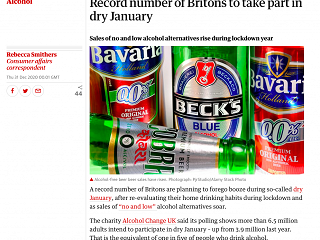WHEN YOU TRANSFORM YOUR RELATIONSHIP WITH ALCOHOL

If you are one of these many people who are considering dry January, go for it.
Resetting your relationship with alcohol can only be beneficial.
To encourage those of you who decided to do dry January, I have listed the ways that alcohol affects us negatively:
Alcohol interferes with digestion, storage and utilisation of nutrients such as:
Fat soluble vitamins A D E K B vitamins C vitamin Minerals such as Magnesium, iron, zinc and selenium Omega-3 fatty acids Choline.
What this means is, that you might be consuming these nutrients via your diet or supplements, yet the absorptions and utilisation can be impaired whilst your body is dealing with the booze that you have drunk.
Even moderate alcohol drinking is found to damage our gut lining. This leads to “Leaky gut” and unbalanced gut microbes, which further contribute to our gut health symptoms as well as impaired immunity, increased food intolerances, fatigue, anxiety, low mood and joint and muscle pain.
Alcohol disrupts our hormone balance and communication between our nervous, endocrine and immune systems. Bodily systems effected are:
Disrupted circadian rhythm (sleep and awaking) Thyroid and metabolism Female hormones (intensified PMS and menopause symptoms) Adrenal dysfunctions (stress hormones and their related issues) Immune system.
Alcohol affects our brain health. Alcohol reduces blood flow to the brain, as well as interacts with feel good hormones serotonin, GABA and dopamine.
Alcohol overloads our liver workload. The liver has many functions including processing digested foods, combating infections, dealing with hormone recycling and detoxification, as well as dealing with toxins like alcohol.
If the liver has to break down too much alcohol, its other functions are negatively affected, and it can become damaged.
Alcohol increases the risk of certain cancers, such as liver, oesophageal colorectal, head and neck and especially breast cancer. More we drink, the more the cancer risk increases. Some of the ways how alcohol increases our risk for cancer are:
Alcohol contains chemicals such as ethanol and acetaldehyde that are found to have the ability to damage our healthy cell DNA.
Due to the effects on gut and liver health, alcohol interferes with the breakdown of oestrogen, causing excess oestrogen to build up in the body. Women with higher than normal levels of oestrogen in their body may have an increased risk of oestrogen driven cancers such as ovarian, uterine and breast cancers.






